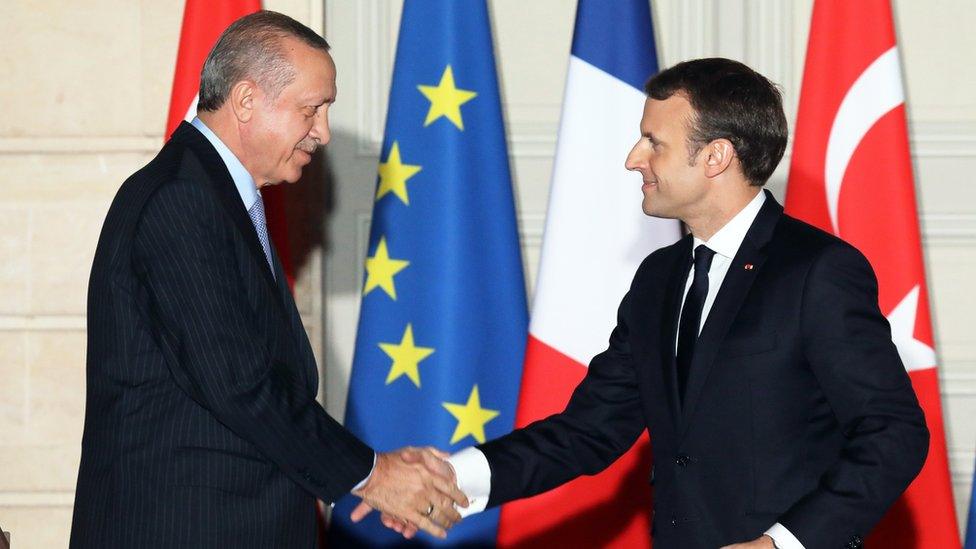EU blocks Albania and North Macedonia membership bids
- Published
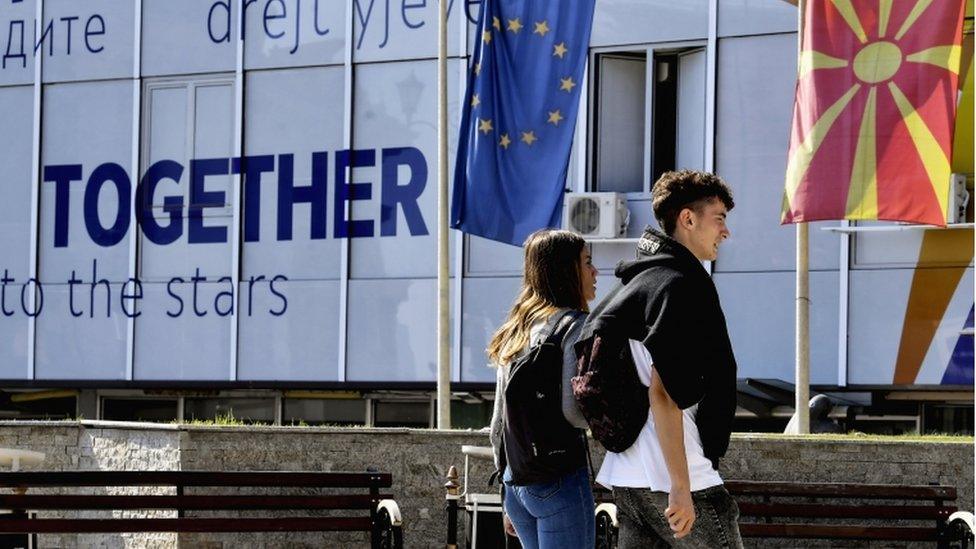
European Commission chief Jean-Claude Juncker called the decision "a historic mistake".
Senior EU officials have reacted angrily after a handful of member states, led by France, blocked Albania and North Macedonia from starting membership talks.
Leaders of the bloc's 28 states spent hours in heated debate over the issue but failed to agree, diplomats said.
The failure came despite a recommendation from the European Commission and the European Parliament.
Commission chief Jean-Claude Juncker said it was "a major historic mistake".
"I hope it will only be temporary," he said.
EU Council President Donald Tusk echoed his sentiments, saying: "It's not a failure, it's a mistake. I feel really embarrassed."
Allow X content?
This article contains content provided by X. We ask for your permission before anything is loaded, as they may be using cookies and other technologies. You may want to read X’s cookie policy, external and privacy policy, external before accepting. To view this content choose ‘accept and continue’.

At the EU summit, French President Emmanuel Macron led a small number of countries in rejecting the Western Balkan countries from moving forward with their membership bids. He was joined by Denmark and the Netherlands in refusing Albania but France alone rejected North Macedonia. All EU states must agree before approval is given for membership talks to begin.
What did France say?
At a news conference, President Macron said the accession process had to be reformed.
"This is a dispute about vision," he said. "The enlargement rules need reform. We mustn't open accession talks with North Macedonia before Albania - there must be a majority for talks with both, together. We should do more to help those countries develop, not just make pledges."
Before starting membership talks, potential new members of the bloc must demonstrate a range of reforms in areas such as economic policy, human rights, anti-corruption measures and the rule of law. The European Commission said in May that Albania and North Macedonia had both made sufficient progress. Both countries have official "candidate" status in their EU membership bids.
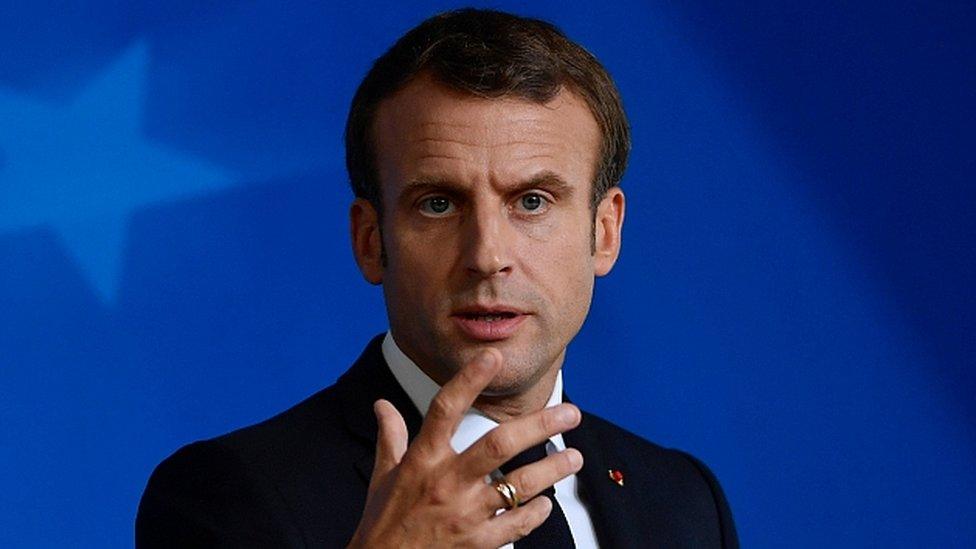
French President Emmanuel Macron said the accession process needed to be reformed
Mr Macron acknowledged that progress had been made but said some areas, such as immigration, needed more work.
There have widespread concerns in the EU about illegal migration via the Balkans, with some countries seen as back-door smuggling routes.
What other reaction was there?
German Chancellor Angela Merkel said there was "disappointment" over the decision but the matter would be revisited before a summit on the Western Balkans early next year.
"It's the French wish to make the accession process more transparent," she said. "There are different assessments of what remains for them to do. Some say the countries haven't done enough. North Macedonia has done a considerable amount. Albania has also achieved a lot, but not enough for EU unanimity."
Mrs Merkel championed North Macedonia's cause earlier this year when it agreed to change its name from Macedonia to settle a row with Greece.
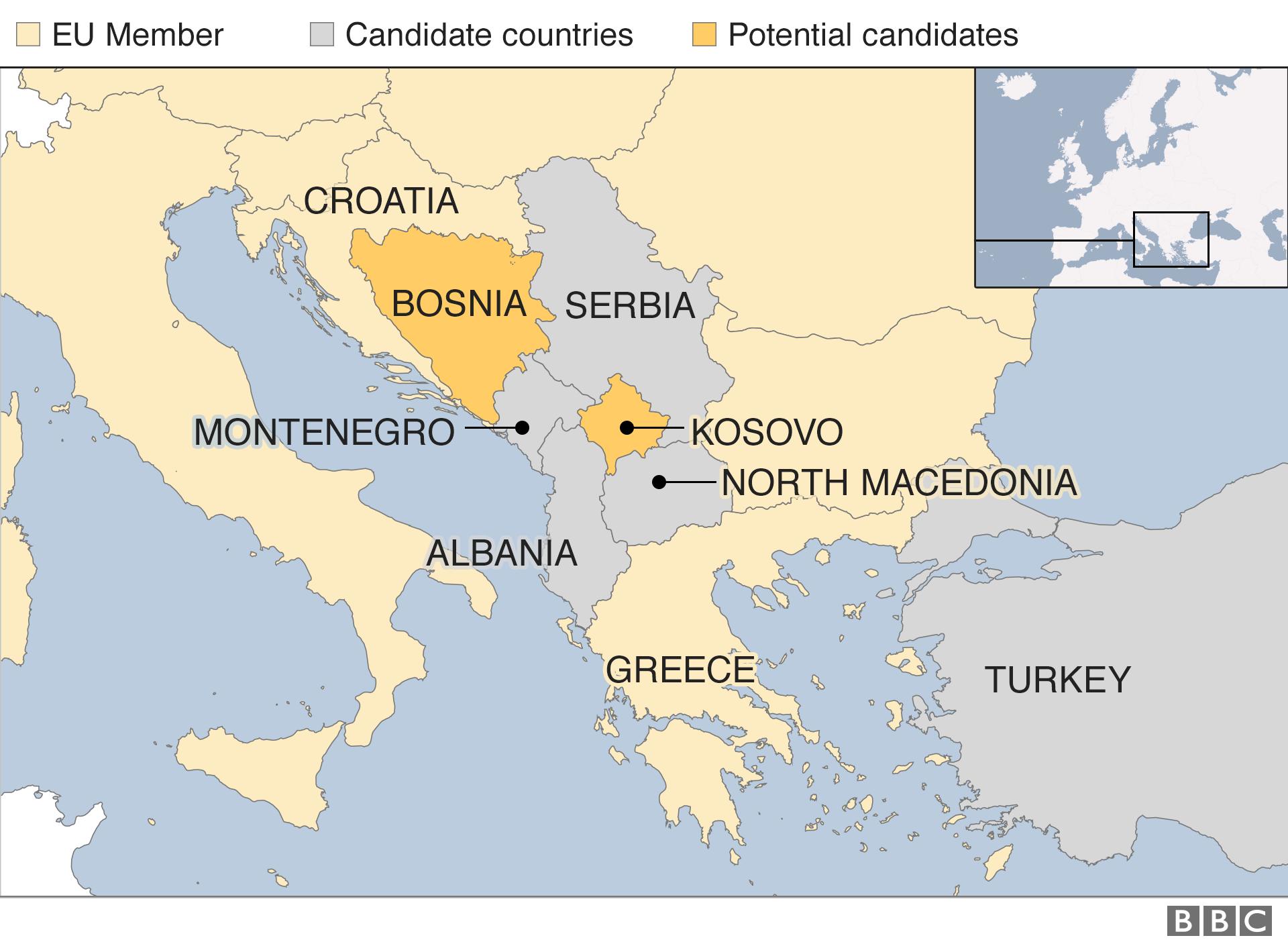
North Macedonian foreign minister Nikola Dimitrov called on the EU to be honest about the prospects for future membership. "The least that the European Union owes the region is to be straightforward with us," he said. "If there is no more consensus on the European future of the Western Balkans, the citizens deserve to know."
The EU's commissioner for enlargement, Johannes Hahn, accused EU leaders of breaking commitments to the two countries. He said member states "now need to clarify how serious their commitment is to the Western Balkans' EU integration".
He tweeted: "To refuse acknowledgement of proven progress will have negative consequences, including the risk of destabilisation of the Western Balkans, with full impact on the EU."
The European Commission sees the integration of Balkan countries as a tool for stabilisation, in a region that was convulsed by conflict in the 1990s.
What happens now?
Italian Prime Minister Giuseppe Conte said he would propose that accession talks with Albania and North Macedonia restart in November. He described the decision as a "historic error".
Belgian Prime Minister Charles Michel also vowed not to let the matter drop, saying: "We'll see how to get back to this debate later."
- Published2 April 2019
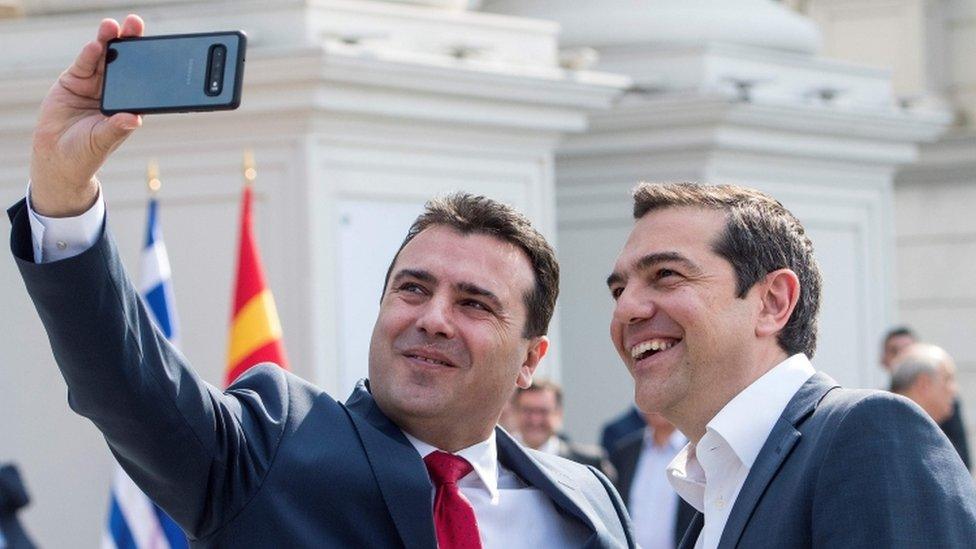
- Published5 January 2018
